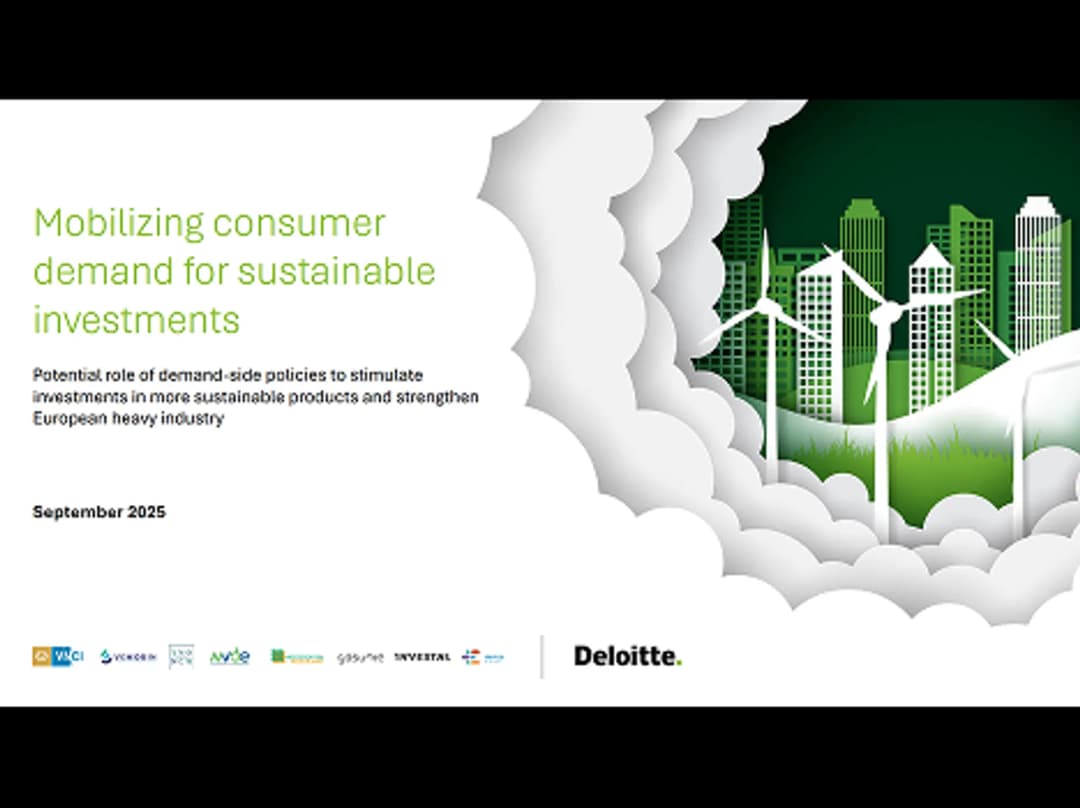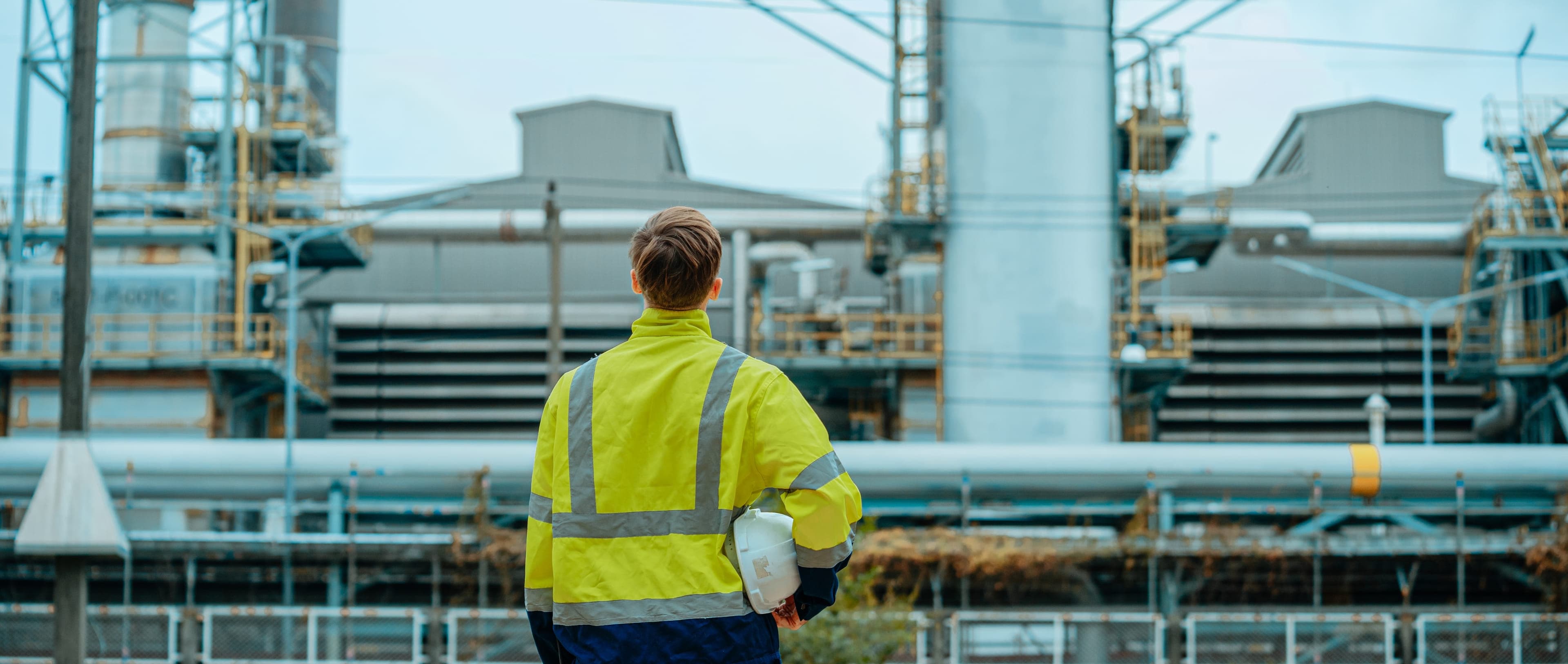
Energy
—30 september 2025
September 30, 2025
3 minutes

The European industry faces a significant sustainability challenge. This requires substantial investments that depend on a stable market for sustainably produced products. New research by Deloitte shows that demand creation – actively generating demand for more sustainable alternatives – can play a decisive role in this. It not only makes the industry more sustainable but also stronger and more competitive.
The industry is struggling with high energy costs, an inadequate energy infrastructure, limited protection against imports, and also too little certainty about the demand for sustainably produced products. Under this pressure, factories in Europe are closing and relocating to countries with less strict sustainability requirements. Industrial emissions are decreasing in Europe, but at the same time, emissions from imported products are rising.
The current policy mainly focuses on CO₂ pricing. Due to vulnerabilities in the CBAM system (a European CO₂ levy on imported products), the competitive position of European manufacturers is deteriorating. Additionally, sustainable production in energy-intensive sectors is currently more expensive than using fossil resources, with a cost difference that can amount to € 165 billion per year. That gap is too large to cover with subsidies. Without certainty of enough buyers, it is simply not feasible to develop a business case for this.
The solution lies in creating a structural market for sustainably produced products. By setting product requirements, a stable demand is created, allowing companies to invest in sustainability. According to Deloitte, this often involves a premium of less than 1% in final products.
Demand creation is not new. Blending biofuel with petrol at the pump has already led to profitable investments in large-scale production. In sectors such as steel, fertilisers, and plastics, demand creation can also be a lever for making the production process more sustainable. For example, in the automotive industry – which accounts for 19% of European steel consumption – switching to steel produced with renewable energy could lead to a reduction of over 1.2 million tonnes of CO₂, while the price of cars would only increase by 0.3%.
A broad coalition of sectors is urging the European Commission to systematically include demand creation in the new Industrial Accelerator Act. Conditions such as affordable energy and sufficient infrastructure must also be addressed.
Stephan Falcão Ferreira, business developer at Invest-NL: “Demand creation is the missing link in making the European industry more sustainable. Only when there is certainty that sustainably produced products will genuinely be purchased, will companies dare to make the necessary investments. This way, we not only make our industry more sustainable but also less dependent on often non-European fossil fuels.”
Stephan Falcão Ferreira
business development manager
